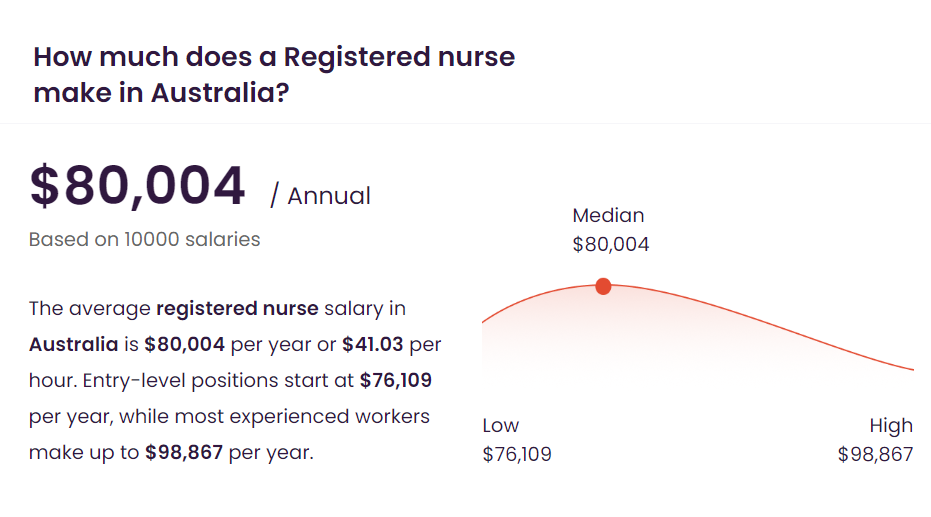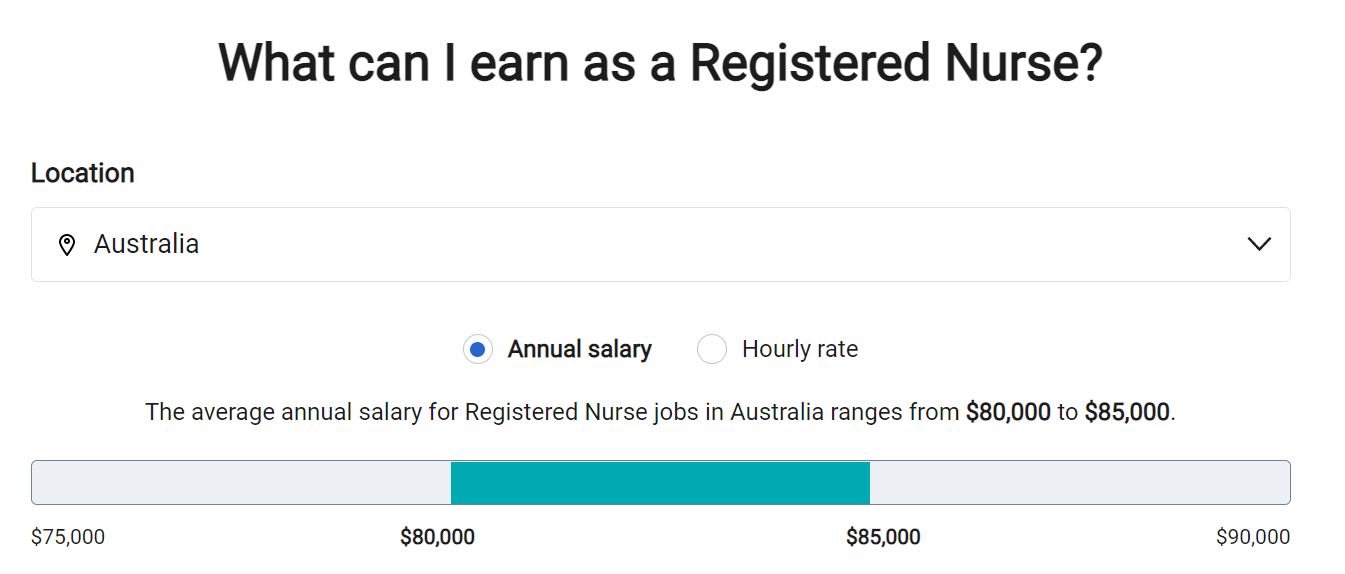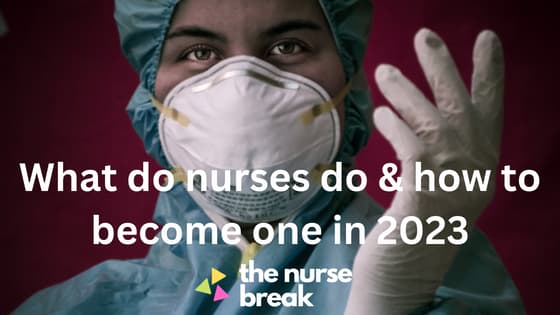Table of Contents
The following article is for ANYONE who is considering becoming a nurse. This is a very comprehensive about what nurses do in Australia and how to become a nurse, so we hope you enjoy the read and make sure to share it!
We cover what a career looks like, how to become a nurse in Australia, ethics and principles, information on salaries, useful links to other resources that you need to read, information on death and dying (a reality of nursing) and much more!
What a career as a nurse can look like?
Nurses perform one of the most important roles in society and healthcare. Everyone will at some point in their lives be cared for by a nurse. It might be a paediatric nurse, mental health nurse, community / primary health nurse, aged care / geriatric nurse, palliative care nurse, emergency or intensive care nurse or any number of other kinds of nurses.
There are so many fields to work in that you can literally never get bored.
Work in the Navy/Airforce or Army, working in the most rural and remote locations across Australia and abroad. How about a sky office – then Retrieval Rescue Nurse working in helicopters and planes might be for you. What about caring for cancer / oncology patients or working with mentally unwell or in prisons and corrections, spending time nursing sick children, or becoming a researcher and academic!
You get the point right? There is endless variety! Check out other areas below using the dropdown
What do nurses do though?
In a field, as varied as nursing as you have just learnt above – there is actually no typical answer. Nurses can be involved in making literal life-saving treatment decisions in critical care settings or they could be providing vaccinations in schools. Both are important in different ways but the roles are remarkably different. The role and skill variety is huge.
However, a key characteristic of all nursing roles is the ability to advocate for patients’ best interests. Using evidence-based critical thinking, nurses use their judgment to integrate objective data with the subjective experience of a patient’s biological, physical and behavioural needs.
Some nurses become Nurse Practitioners who are extremely qualified and experienced clinicians who provide the most advanced level of nursing care – they can prescribe medication, diagnose and treat illnesses and injuries across their speciality. Some nurses become Remote Area Nurses (RANs) or Rural Isolated Practice Registered Nurses (RIPRN) and they work in the most isolated locations across Australia and beyond its borders providing advanced levels of healthcare. It goes on and on. Once again check out the articles here to learn more about the intricacies of different roles and what they do.
We asked nurses what they LOVE and HATE about nursing. It may surprise you
The most common misconceptions about nursing you NEED to know
So how do I become a nurse?
- A Diploma of Nursing (TAFE) to become an Enrolled Nurse (EN)
- A Bachelor of Nursing (University) to become a Registered Nurse (RN)
- Already have a degree (any degree)? You can become an RN in 2 years through a “Graduate Entry” degree. Students are awarded the equivalent of one year of advanced standing (credit) and complete the course in two years. Google search “graduate entry to nursing degree”
- Starting off as an Assistant in Nursing or Personal Care Attendant is also a good option for those super unsure
Want to learn the difference between the studies and roles of an EN or RN? Read this article
Here is a list of AHPRA-approved Bachelors of Nursing
Here is a list of AHPRA-approved Diplomas of Nursing
Once you are a confirmed nursing student you MUST under the law register yourself with AHPRA. Fact sheet: Student registration
How much do nurses earn? $$
The long story short, is that ‘it depends. It depends on which state, public vs private, what kind of nursing, your level of experience, your specific job role, if you’re an EN or RN and much more.
For most management roles, rural remote, advanced clinical nursing roles – you’re looking at over $100,000 minimum. But you can also make that as a less senior nurse with overtime and penalty rates. Just make sure to look after yourself and self-care
According to the Seek and Talent websites:


Registration Standards
Once you have confirmed you want to be a nurse you now need to be prepared for the following:
- Comply with Criminal History checks and requirements
- Prove and meet the minimum English language skills
- Engage yearly in Continuing professional development
- Demonstrate Recency of practice
- Obtain Professional indemnity insurance
Code of conduct and ethical principles. Is nursing really for me?
Nurses are the most respected profession and live by at least four universal principles. And you will have these drilled into you during your studies. You need to ensure you can live up to these before being a nurse.
Respect for Autonomy
Autonomy means that the patients are able to make independent decisions. Nurses ensure patients have all of the needed information that is required to make a decision about their medical care and are educated. Nurses dont influence the patient’s choice.
Non-maleficence
This means that nurses must do no harm intentionally. Nurses must provide a standard of care which avoids risk or minimises it, as it relates to medical competence. An example of nurses demonstrating this principle includes avoiding negligent care of a patient.
Beneficence
Beneficence is defined as kindness and charity, which requires action on the part of the nurse to benefit others. An example of a nurse demonstrating this ethical principle is by holding a dying patient’s hand.
Justice
Justice means being impartial and fair. Nurses making impartial medical decisions demonstrate this, whether it relates to limited resources or new treatments regardless of economic status, ethnicity, sexual orientation, etc.
What is it like as a nursing student? Am I too old to become a nurse?
Here are all the graduate and student nursing articles
Nursing at 54 years of age. This is a must-read article on imposter syndrome. Here is another great read.
Nursing can also be really funny and entertaining!
Check out these HILARIOUS stories from nurses and students.
What about having to deal with death and dying?
It’s a great question to have. We have asked many nurses this. We suggest you check out the following content to gain more perspective.
Our video interview with Melanie Davies, who is a Victorian based Palliative Care Nurse Consultant
Our written article with Oncology Nurse Practitioner Marisa Stevens or the video interview
And check out our Mini-Series on this topic below.
We hope you have enjoyed this article written by the Founder of The Nurse Break.
Another great article to read is this one. How to Get a Nursing Job With No Experience in Australia






You must be logged in to post a comment.